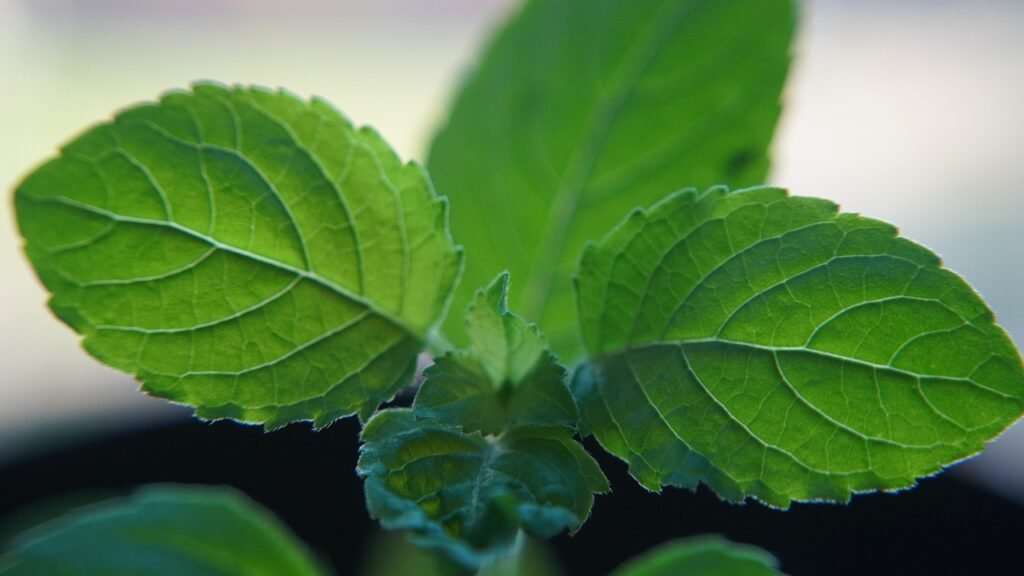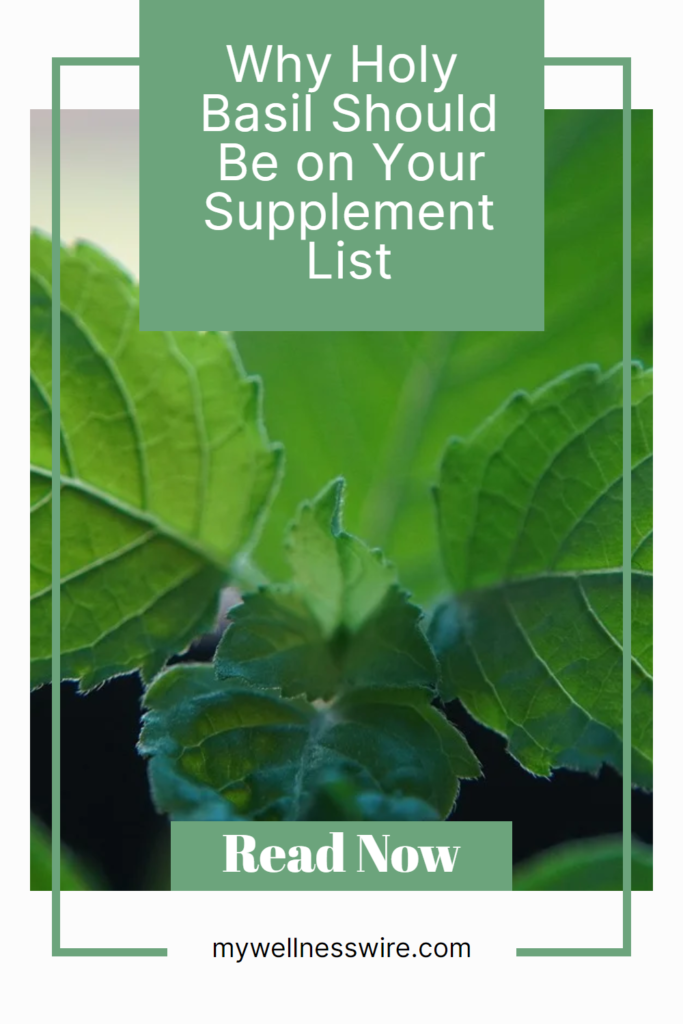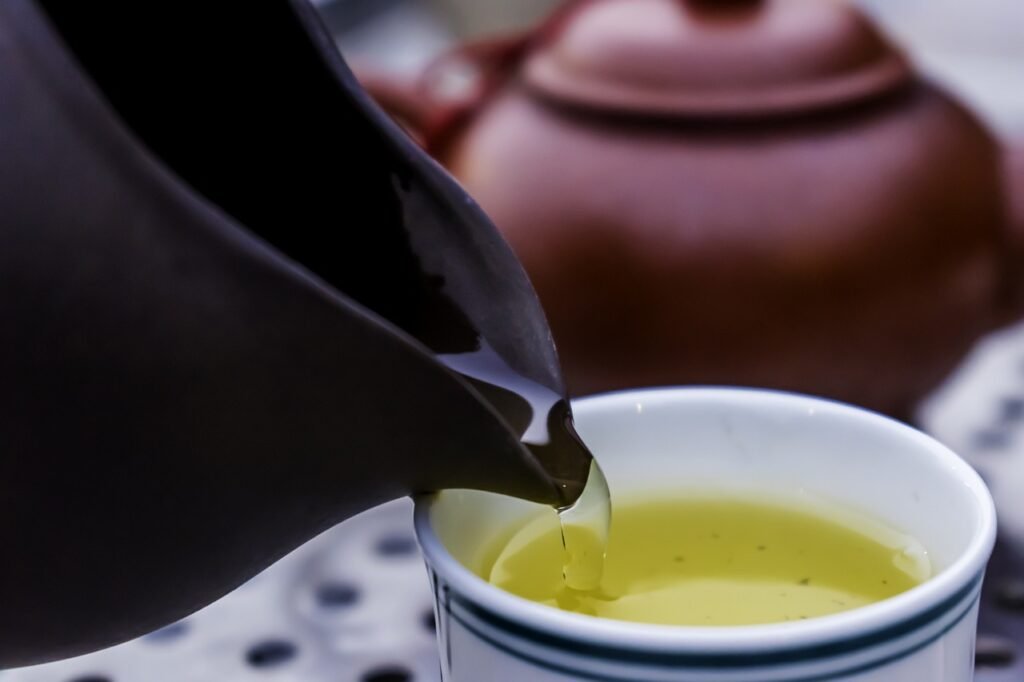
- Intro
- The Science Behind Holy Basil's Health Benefits
- Understanding Holy Basil and Its Historical Significance
- Holy Basil and Stress Reduction: A Natural Adaptogen
- The Role of Holy Basil in Supporting Immune Health
- How to Incorporate Holy Basil Into Your Daily Routine
- Potential Interactions and Considerations Before Adding Holy Basil to Your Supplement Routine
Intro
In the stressful and often toxic world we live in today taking care of our health is crucial. A great way to do this is by adding supplements to our daily routine. Holy Basil, also called Tulsi, is one supplement that has become increasingly popular due to its health benefits.
This ancient herb has been a staple in medicine for centuries because of its healing qualities. Lets delve into why Holy Basil deserves a spot on your list of supplements and how it can improve your health and well being.
The Science Behind Holy Basil’s Health Benefits
In diving into the empirical landscape that envelops Holy Basil, modern scientific inquiry has begun to shed light on the foundational elements that underpin its myriad of health-promoting effects. Central to Holy Basil’s efficacy are its potent bioactive compounds, such as eugenol, rosmarinic acid, and apigenin. These molecules serve as the cornerstone of Holy Basil’s therapeutic potential, orchestrating a symphony of biochemical reactions that fortify the body’s resilience against the onslaught of chronic disease.
Eugenol, with its pronounced antioxidant properties, plays a pivotal role in mitigating oxidative stress, a nefarious perpetrator behind cellular damage and the aging process. This compound effectively neutralizes harmful free radicals, safeguarding cells from the destructive forces that precipitate chronic health conditions.
Simultaneously, rosmarinic acid, another antioxidant powerhouse, steps into the fray, offering additional fortification against oxidative stress and inflammation. Its presence in Holy Basil underscores the herb’s dual-action approach in confronting these pervasive health challenges.
Furthermore, apigenin emerges as a critical player in Holy Basil’s arsenal, wielding anti-inflammatory capabilities that extend the herb’s therapeutic reach. Inflammation, a common thread linking a multitude of chronic diseases, meets its match in apigenin’s capacity to dampen inflammatory pathways. This not only alleviates immediate discomfort but also sets the stage for long-term health and disease prevention.
The convergence of these bioactive compounds within Holy Basil exemplifies the intricate dance between nature and biochemistry. As scientists continue to unravel the molecular intricacies of Holy Basil, they are met with a compelling narrative of natural compounds harmonizing to bolster health and stave off disease.
This ongoing exploration into Holy Basil’s biochemical constitution reinforces the bridge between traditional wisdom and contemporary science, heralding a new era of understanding and appreciation for this venerable herb. Through the lens of modern research, the timeless virtues of Holy Basil are being recast, affirming its place as a cornerstone of holistic health and wellness.
Understanding Holy Basil and Its Historical Significance
Holy Basil, scientifically referred to as Ocimum sanctum, is not merely a plant; it’s a cultural cornerstone deeply woven into the fabric of Southeast Asia and India’s rich history. This revered herb transcends the realm of the medicinal, occupying a sacred space in the hearts and traditions of these cultures.
Known for its profound healing capabilities, it has earned the title of the “Queen of Herbs” within the ancient practice of Ayurveda, marking it as a cornerstone of traditional medicine in these regions.
The significance of Holy Basil stretches back over thousands of years, where it has been celebrated not only for its therapeutic virtues but also for its spiritual essence. In Ayurvedic tradition, Holy Basil is more than just a remedy for physical ailments; it is considered a holistic herb that purifies the mind, body, and spirit. Its presence in daily life is thought to bring about harmony and balance, reflecting the deep-seated belief in its power to influence health and well-being on multiple levels.
The cultivation and use of Holy Basil have been guided by knowledge passed down through generations. It’s a testament to the enduring belief in nature’s ability to heal and sustain us. The herb’s applications are as diverse as its history, ranging from improving respiratory health to serving as a foundation for stress management techniques. This versatility is a key aspect of why Holy Basil has remained a staple in traditional medicine cabinets, even as it begins to capture the attention of modern science.
Today, as we delve into the pharmacological potential of Holy Basil through contemporary research, it’s crucial to acknowledge this rich tapestry of cultural and historical significance. The scientific community is only beginning to uncover the biochemical intricacies that confer its health benefits, which people of Southeast Asia and India have intuitively recognized for centuries. The convergence of traditional wisdom with modern science underscores Holy Basil’s enduring legacy as a powerful ally in our quest for health and harmony.
Holy Basil and Stress Reduction: A Natural Adaptogen
Navigating the complexities of stress in our modern world demands innovative solutions that are both effective and sustainable. In this quest, Holy Basil emerges as a beacon of hope, its adaptogenic properties offering a natural pathway to resilience against the myriad stressors that pervade our daily lives. As an adaptogen, this remarkable herb supports the body’s innate ability to balance and manage stress, without tipping the scales towards exhaustion or burnout.
At the heart of Holy Basil’s adaptogenic prowess lies its capacity to modulate cortisol levels, the hormone chiefly responsible for stress responses in the body. By fine-tuning cortisol’s orchestration, Holy Basil helps in normalizing our physiological reactions to stress, enabling us to confront challenges with poise and equanimity. This regulation is crucial not just for mental and emotional well-being, but for physical health as well, as prolonged exposure to elevated cortisol levels can undermine the integrity of various bodily systems.
Moreover, Holy Basil’s influence extends to the adrenal glands, those vital organs tasked with hormone production during stress. By bolstering adrenal function, Holy Basil ensures that our bodies are better equipped to cope with stress, be it acute or chronic. This support mitigates the adverse effects of stress on the body, from fatigue and irritability to compromised immune function.
Incorporating Holy Basil into one’s supplement regimen is more than a strategy for stress management; it’s an investment in a holistic approach to wellness. Through its adaptogenic capabilities, Holy Basil does not merely mask symptoms of stress but addresses the underlying mechanisms, fostering a state of balance and adaptability.
As we navigate the ebbs and flows of daily stressors, having Holy Basil as an ally can be transformative, empowering us to face life’s challenges with a renewed sense of vitality and resilience. This herb’s ancient wisdom, coupled with its adaptogenic properties, provides a solid foundation for those seeking to enhance their ability to adapt to stress, naturally.
The Role of Holy Basil in Supporting Immune Health
Holy Basil’s role in fortifying immune health extends beyond its adaptogenic prowess, entering the realm of antimicrobial and antiviral defense. This venerable herb carries within its leaves and stems a potent array of immune-boosting properties that are pivotal in our ongoing battle against pathogens. Its capability to enhance the body’s immune response is not just a testament to its adaptability but also highlights its integral role in maintaining our health’s front line.
Research underscores Holy Basil’s multifaceted approach to immune support. Its rich profile of phytochemicals, including those mentioned bioactive compounds, works synergistically to reinforce the body’s defenses. These compounds have been shown to stimulate the activity of immune cells, making them more efficient in their response to invaders. The result is a more robust and responsive immune system, capable of warding off infections and illnesses with greater vigor.
Moreover, Holy Basil’s antimicrobial and antiviral properties offer a direct line of defense against pathogens. By inhibiting the growth of a wide range of bacteria, viruses, and fungi, Holy Basil acts as a natural antimicrobial agent. This not only reduces the likelihood of infections but also supports the body’s healing processes, ensuring a faster return to health.
The immune-enhancing properties of Holy Basil are particularly valuable in today’s fast-paced world, where the immune system is constantly challenged by stress, pollution, and pathogens. Integrating Holy Basil into our daily supplement routine is akin to equipping our immune system with a more refined arsenal, one that is both ancient in wisdom and verified by modern science.
This dual advantage positions Holy Basil as a key player in our pursuit of optimal health, empowering our immune system to function at its best. In the landscape of immune health, Holy Basil stands out not just for its historical significance but for its proven efficacy in bolstering our body’s natural defenses.
How to Incorporate Holy Basil Into Your Daily Routine
Integrating Holy Basil into your day-to-day life can be a seamless and enjoyable process, one that complements your existing habits while introducing a wealth of health benefits. The versatility of this herb means it can be adapted to fit into various aspects of your dietary and wellness routines, catering to your individual preferences and lifestyle needs.
For those inclined towards convenience and ease of use, Holy Basil supplements in capsule or tincture form offer a straightforward approach. These concentrated forms allow for precise dosage control and can be easily incorporated into your morning or evening supplement regimen. Opting for a high-quality, organically sourced supplement can ensure you receive the full spectrum of Holy Basil’s bioactive compounds, maximizing its health-promoting potential.
If you enjoy the ritualistic aspect of tea preparation, brewing a cup of Holy Basil tea could be a delightful way to incorporate this herb into your routine. The act of sipping tea made from dried Holy Basil leaves serves not just as a means of intake but also as a moment of calm and reflection in your day. This practice marries the physical benefits of Holy Basil with a mindful approach to wellness, enhancing its stress-reducing properties.
Culinary enthusiasts might find joy in experimenting with fresh or dried Holy Basil in their cooking. The herb’s aromatic quality adds a unique flavor to dishes, allowing you to infuse a touch of Ayurvedic wisdom into your meals. From smoothies and salads to soups and sauces, the possibilities are endless. This method of incorporation not only enriches your diet with the health benefits of Holy Basil but also elevates your culinary creations with its distinct taste profile.
Ultimately, the key to successfully integrating Holy Basil into your daily routine lies in exploring these various methods to discover what resonates with you. Whether through supplements, tea, or culinary uses, each approach provides a pathway to harnessing the holistic health benefits of this revered herb, making it a valuable addition to your wellness journey.
Potential Interactions and Considerations Before Adding Holy Basil to Your Supplement Routine
When contemplating the incorporation of Holy Basil into your health regimen, it’s crucial to navigate the landscape of potential interactions with mindfulness and informed caution. This sacred herb, while brimming with health-enhancing properties, also warrants a thoughtful examination of how it might interplay with your unique physiological blueprint and any medicinal protocols you may be following.
Individuals currently managing health conditions or those on a structured medication plan, particularly for ailments such as blood clotting disorders or diabetes, may find that Holy Basil interacts in unforeseen ways. Its potent bioactive compounds, while beneficial in numerous contexts, can influence the body’s response to these medications, potentially necessitating adjustments in dosages or, in some cases, reevaluation of Holy Basil as a suitable supplement.
Those expecting a child or nursing should also approach Holy Basil with a degree of caution. The comprehensive impact of its compounds on pregnancy and lactation remains an area ripe for further research. As such, erring on the side of caution and seeking the guidance of a healthcare professional becomes not just a recommendation, but a necessary step.
The dialogue between your health goals and the introduction of any new supplement, including Holy Basil, should ideally be facilitated by a healthcare provider knowledgeable about both the potential benefits and the nuances of herbal supplementation. This ensures that your path towards enhanced well-being is both safe and harmonious with your body’s needs and existing treatments.
In sum, while the allure of Holy Basil’s health benefits is undeniable, embracing it as part of your supplement routine demands a balanced approach. By considering potential interactions and consulting with healthcare professionals, you can navigate towards realizing the full spectrum of benefits this ancient herb has to offer, aligned with your personal health journey.
Pin this post to read later



